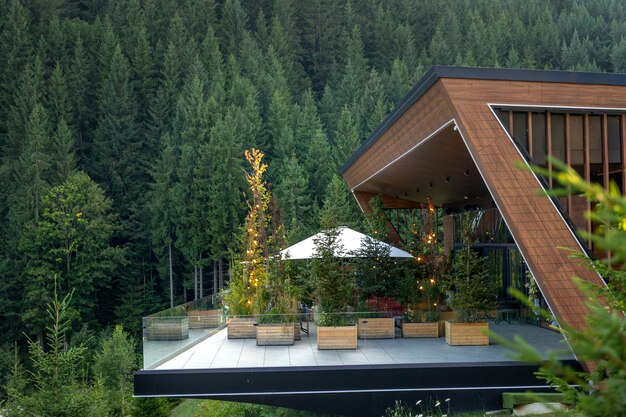
Sponsored article
In an era where sustainable living and cost efficiency are increasingly valued, modern prefabricated homes are emerging as an ideal solution for rural communities. These innovative structures bring together cutting-edge design and functionality, offering flexible and eco-friendly living spaces that cater to the unique needs of remote living. By combining affordability with fast construction, prefabricated homes present a compelling choice for those seeking to enhance their rural lifestyle without compromising on modern comforts.
Prefab homes offer significant advantages for those seeking remote living solutions, especially in rural areas where traditional building methods can be challenging and costly. One of the primary rural housing benefits of prefabricated homes is their cost-effectiveness, allowing families to achieve quality housing without the extensive expenses typically associated with custom builds. The efficient factory-controlled construction process of prefab homes ensures rapid assembly, minimizing the time and labor required on-site, which is ideal for locations that are difficult to access. Moreover, these manufactured homes are often designed with sustainable housing principles in mind, incorporating energy-efficient materials and systems that are perfectly suited to the self-sufficient mindset of rural dwellers. Those interested in establishing a homestead will find that prefab homes offer a modern and practical approach. For individuals searching for [manufactured homes for sale](https://nhlhomes.com/services/), these structures represent a promising and adaptable solution to the unique challenges of rural living.
Design innovations in modern prefabricated homes have dramatically transformed the appeal of rural living, offering a blend of aesthetic allure and functional prowess that is hard to resist. These prefab home features are redefining architectural design, providing a seamless integration of style and utility. Modern prefab homes boast an array of customizable options, catering to diverse tastes and ensuring each residence is a unique reflection of its inhabitant’s personality. Moreover, their adaptability is a standout trait, easily fitting into various landscapes and accommodating future expansions or changes in living needs. Energy efficiency is another cornerstone of these homes, utilizing advanced insulation techniques and sustainable materials to minimize the ecological footprint. This makes them not only cost-effective in the long run but also environmentally responsible. With such cutting-edge design innovations, modern prefab homes represent the pinnacle of smart design for those seeking comfort and sustainability in rural settings.
Choosing prefabricated homes for rural living significantly enhances sustainability and minimizes the environmental impact. These eco-friendly homes are constructed using sustainable materials, which often include renewable resources like bamboo or recycled steel, thereby reducing reliance on traditional, resource-intensive construction methods. Additionally, sustainable prefab homes are usually manufactured in controlled factory settings, which optimizes material use and significantly reduces waste. This efficient production process not only lessens the carbon footprint but also ensures high-quality construction that aligns with green building standards. Moreover, many prefab homes incorporate energy-efficient designs, such as superior insulation and renewable energy systems, further supporting eco-friendly living. By integrating innovative design with sustainable practices, prefabricated homes offer a viable solution for those seeking to reduce their environmental impact while enjoying the comforts of modern, rural living. Embracing these sustainable prefab solutions fosters a harmonious balance between nature and development.